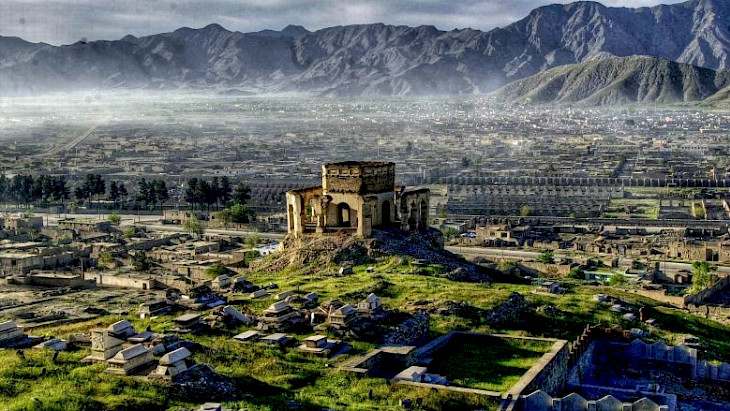
In this process, historical, geopolitical, geo-economic, as well as cultural and religious contradictions are intertwined
Monitoring Desk
Ethno-political processes in Afghanistan have been marked by complexity throughout its history. The country is inhabited by Pashtuns, Tajiks, Uzbeks, Hazaras, as well as several other smaller ethnic groups. The neighboring states to the north are equally interested in stabilizing the situation in Afghanistan and build relations with the authorities in Kabul according to their own policies. The analytical center of Moscow State University Ia-centr.ru publishes an article by Dr. Alexander Knyazev, a historian, and Ninel Gulam, a student at the Moscow State Institute of International Relations of the Ministry of Foreign Affairs of Russia. The full version of this material is published below.
Motives for the involvement of Central Asian countries in the ethnic processes of Afghanistan vary from one country to another. Among the Central Asian countries, Uzbekistan, Turkmenistan, and Tajikistan stand out in particular.
Characteristics of Uzbek Diplomacy in Afghanistan
In the 1990s, Uzbekistan actively contributed to the creation of a buffer formation led by the ethnic Uzbek Abdulrashid Dostum in the Afghan region near its borders. The frequently encountered information about massive support to Dostum from Uzbekistan lacks any documentary basis.
The first official contacts between Tashkent and the Taliban leadership were established in 1999. Throughout the subsequent period and to this day, Uzbekistan relies on agreements with the active governments of Afghanistan, without emphasizing support for Afghan Uzbeks.
Starting from 2017-2018, Tashkent established a sustainable dialogue with the leadership of the Taliban movement. During this period, Uzbekistan was not ready to take responsibility for comprehensive settlement in Afghanistan but, being the nearest and influential regional player, attempted to become part of the large-scale process of Afghan settlement.
After August 2021, Uzbekistan was among the first states in the region to establish interaction with the new government in Kabul to address issues related to economic cooperation and security. There are no indications that the Uzbek community in Afghanistan occupies a special status in Uzbekistan’s Afghan policy based on ethnic ties.
How Turkmenistan Builds Relations with Afghanistan
Turkmenistan is the only neighboring country of Afghanistan that, in recent decades, has not attempted to provide support to anti-Taliban forces, let alone based on ethnic considerations.
Turkmenistan had the most constructive relations with the Taliban movement during their first tenure in power compared to other Central Asian countries. Ashgabat did not react to the situation of the Turkmen community on the adjacent territory.
Frequent cases are known where attempts by Afghan Turkmens, facing pressure from the Taliban and trying to escape to Turkmenistan, were harshly suppressed by Turkmen security forces.
Alongside Uzbekistan, the authorities of Turkmenistan do not single out Afghan Turkmens as a specific object of their attention and interact with Afghan government bodies.
Tajikistan’s Position Regarding Afghanistan
Tajikistan’s political position differs fundamentally from its neighbors. It is based on political recognition of the Taliban government, aligning with the policy of the US and Western countries in general. Dushanbe advocates for the need to establish an inclusive government in Afghanistan.
The firmness with which inclusivity is declared by Tajikistan implies the necessity of significantly increasing the number of representatives of the Tajik Afghan community in the government of Afghanistan.
The support provided in Tajikistan to Afghan Tajik anti-Taliban groups potentially can lead to escalation, both in the intra-Afghan conflict and in interstate conflict between Tajikistan and Afghanistan, and holds significance for the security of the entire region.
In this context, the motivating factors for external forces to intervene in Afghanistan are regional security and Afghanistan’s resource potential.
After the withdrawal of US troops in 2021, the USA is interested in fragmenting Afghanistan’s political space. In the current context, this means possible support from Washington for any centrifugal tendencies in Afghanistan, in which ethnically organized groups can play a key role.
It is these groups that are most likely to engage in such cooperation and receive support from Western countries for escalating the conflict in Afghanistan. The Afghan and Afghanistan-linked regional conflict space has a multi-layered and multi-level structure. In this process, historical, geopolitical, geo-economic, as well as cultural and religious contradictions are intertwined. If such a scenario is implemented, the likelihood of involvement of neighboring countries is high, including in an ethnic context.
_________________
Courtesy: Central Asian Light (Posted on July 31, 2023)